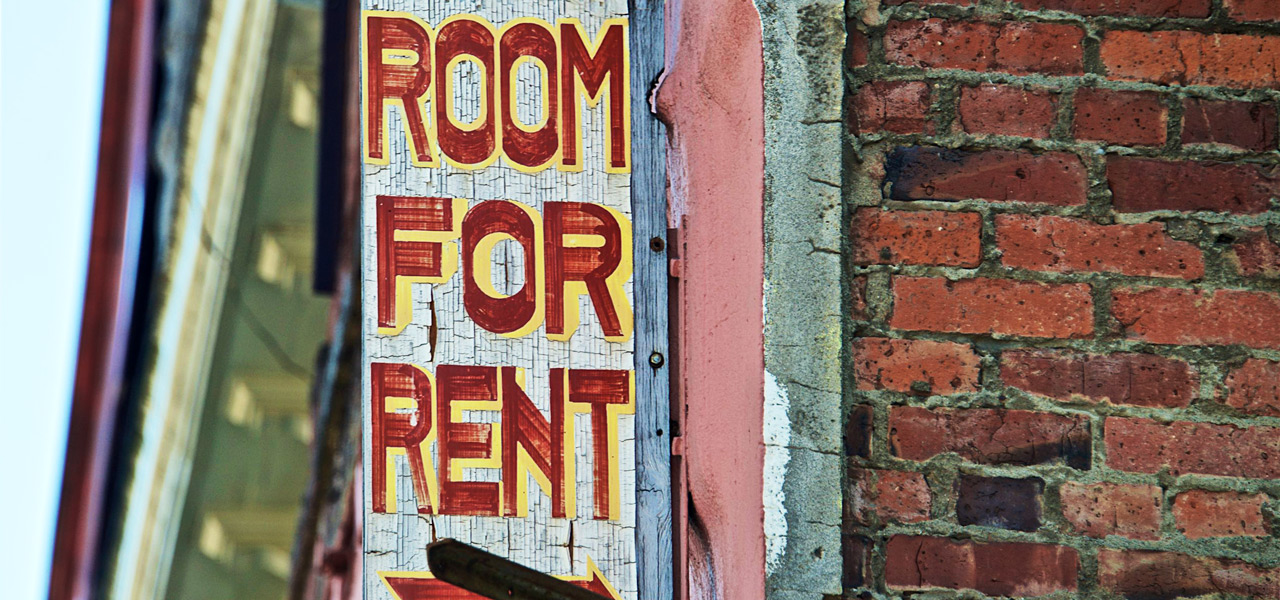Metro Vancouver home prices have been in the news in recent months, not due to bidding wars and double-digit price increases, but because we are seeing the housing market in reverse. The total number of sales for both detached homes and condos are at multi-decade lows, and prices are falling. It’s still too early to tell whether the trend will continue and where bottom really is.
For many ordinary Vancouver residents, this is cold comfort. Even with the recent price drops, buying a home is still out of the question for most looking to get into the housing market. At a lofty price of $565,000, the median price in Metro Vancouver for condos sold in June, is only somewhat less out of reach than the $605,000 commanded a year earlier.
For the more than one-third of households in Metro Vancouver who rent (and over half of households in the City of Vancouver), the affordability crisis is as acute as ever. The high cost of buying housing has led many to continue to rent. The knock-on effect has been extremely low vacancy rates and and upward pressure on rents. The threat of “reno-victions” or “demo-victions” for those who live in secondary suites and condos (rather than purpose-built rental housing) is a related threat.
New research from the CCPA does the math on affordability for renters across the country, including in BC. The results are broken down at the neighbourhood level, you can navigate the full map here.
The map shows rents converted to the hourly wage that would be required to afford an apartment. For our calculation we assumed a standard 40-hour job for 52 weeks a year, and allocated no more than 30% of pre-tax earnings to be spent on rent. Rental data are from the Canadian Mortgage and Housing Corporation’s (CHMC) October 2018 Urban Rental Market Survey. These neighbourhood-level data only cover purpose-built rental stock, to which we have added (more expensive) rented condos (but not including secondary suites).
For Vancouver the results are striking and to anyone in the rental market, not surprising. For the region as a whole, the average rental housing wage is $26.72 per hour for a one-bedroom and $35.43 per hour for a two-bedroom. That is, you need to be making almost $27 an hour, full year and full time, to limit rent to 30% of your income (utilities not included).
Put another way, the median household income in Vancouver in 2017 was $73,800, which works out to a full-time wage of $35.48 per hour. Thus, about half of households could afford to live in a two-bedroom apartment. For unattached individuals, median income is much lower: $34,700 translates into a full-time wage of $16.68 per hour.
Vancouver’s most pricey rental housing is in and around the downtown peninsula (Downtown North, South False Creek and North False Creek), at an average one-bedroom rent of around $2,000 per month, which translates into a wage of about $38 per hour at the 30% rent-to-income threshold. A two-bedroom apartment in these areas is more like $2,600 to $3,200 per month, requiring a wage of $50 to 60 per hour.
Vancouver’s West End includes a lot of older purpose-built rental stock and is somewhat more affordable, with one-bedroom rents around $1,700 per month, with a wage of $33 per hour to stay under the 30% rent-to-income threshold. A two-bedroom apartment is more like $2,400 per month, requiring a wage of more than $45 per hour.
Rental housing costs tend to fall the further away one moves away from the downtown core. In neighbourhoods like Kitsilano, Mt Pleasant, Cedar Cottage and Lonsdale, for example, one-bedroom rents of $1,300-1,500 per month would require a wage of $25-29 per hour. A notable exception is UBC, which are among the most expensive (only slightly less than downtown).
It is important to note that these calculations are based on average rents which include all of the people currently housed, some of whom pay much lower than market rents due to rent controls and from having lived in a home for a long time. If one has to move, rents for available apartments may be much higher than the averages cited above, and the hourly wage required correspondingly higher.
As housing gets more expensive in the central city, low-wage workers must move further away in order to find affordable accommodation. This poses increased time and financial costs for transportation, including the increased likelihood of needing a car. In Metro Vancouver, we see a higher share of low-income rentals near transit stations, although this stock is increasingly under threat due to the lure of condo redevelopments (looking at you, Burnaby).
Another way to look at the data is to calculate what it would take for someone earning minimum wage to afford rental housing in a particular area. In Metro Vancouver, to live anywhere close to downtown, it would take three full-time minimum wage jobs to afford a one-bedroom apartment. A two-bedroom apartment in those same areas would require 4-5 full-time minimum wage jobs! Of the 70 neighbourhoods in Metro Vancouver, there isn’t a single area where a full-time minimum wage worker could afford the average one-bedroom apartment, much less a two-bedroom one.
These calculations are based on the October 2018 minimum wage, but even with the recent increase from $12.65 to $13.85 per hour in BC the minimum wage remains well below the market rental wage calculated (and rents have gone up in the interim too). From all of these data a clear picture emerges: for low-wage workers in the region, decent rental housing is simply unaffordable. This study highlights the urgent need for social housing with rent-geared-to-income units. The market simply is not providing an adequate supply of affordable rental housing.
Overall in Metro Vancouver, social housing is only about 5% of the total housing stock, a number that is very low compared to other jurisdictions. It has also been many decades since purpose-built rental housing was a common development, with incentives for developers currently skewed towards building condos. While a large share of condos may be rented out, that do not have the stability of tenure as dedicated, rental housing.
After taking a couple decades off, it’s about time governments got back into the housing game. There has been renewed efforts on the part of the federal and BC governments to build more dedicated affordable housing, but as our data show, there is a lot more work to do.
Topics: Features, Housing & homelessness






